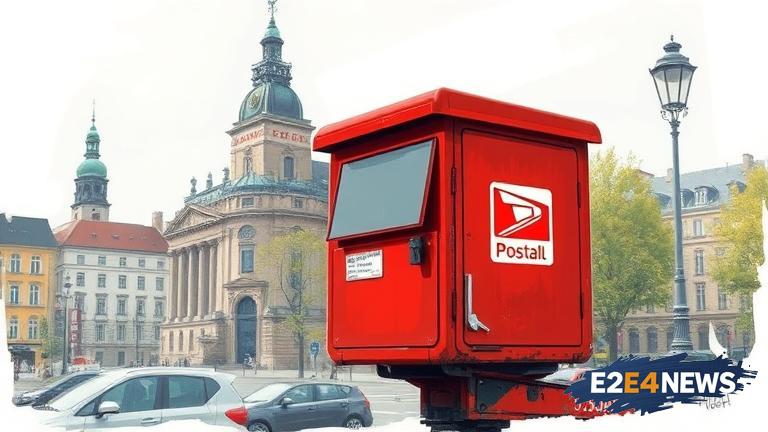The European postal sector is experiencing a significant transformation in recent years, driven by the growing demand for digital communication and the rise of e-commerce. As a result, traditional mail volumes have declined substantially, leading to a decrease in revenue for postal services. However, the increase in online shopping has created new opportunities for postal services to expand their parcel delivery operations. Many European postal services have adapted to these changes by investing in new technologies and infrastructure to improve their efficiency and competitiveness. For instance, some postal services have introduced automated sorting machines and drones to enhance their delivery capabilities. Additionally, there is a growing trend towards sustainable and environmentally-friendly delivery practices, with many postal services exploring the use of electric or hybrid vehicles. The European Union has also implemented various regulations to promote competition and innovation in the postal sector. Despite these efforts, some European postal services are still struggling to remain profitable, leading to concerns about the long-term viability of the sector. In response, some governments have introduced measures to support their national postal services, such as providing financial subsidies or relaxing regulatory requirements. The impact of the digital age on European postal services is not limited to the decline of traditional mail volumes. The rise of e-commerce has also created new opportunities for postal services to offer additional services, such as tracking and logistics management. Furthermore, the growth of online shopping has led to an increase in demand for fast and reliable delivery services, which has driven innovation in the postal sector. Some European postal services have responded to these changes by partnering with technology companies to develop new digital platforms and services. Others have focused on improving their customer service and experience, through the use of social media and other digital channels. The European postal sector is also experiencing a shift towards more regional and local delivery services, as consumers increasingly expect fast and flexible delivery options. In response, some postal services have introduced new services, such as same-day or next-day delivery, to meet these changing demands. The use of data analytics and artificial intelligence is also becoming more prevalent in the European postal sector, as companies seek to improve their operational efficiency and better understand their customers’ needs. Despite the challenges facing the European postal sector, there are still many opportunities for growth and innovation. The sector is expected to continue evolving in response to changing consumer demands and technological advancements. As the European postal sector continues to adapt to the digital age, it is likely that we will see further consolidation and collaboration between postal services, as well as the emergence of new players and business models. The future of the European postal sector will depend on its ability to innovate and respond to changing consumer demands, while also ensuring the long-term sustainability of its services. In conclusion, the European postal sector is undergoing a significant transformation in response to the rise of digital communication and e-commerce. While there are challenges to be addressed, there are also many opportunities for growth and innovation, and the sector is expected to continue evolving in the coming years. The impact of the digital age on European postal services will be far-reaching, and it will be important for companies to remain agile and responsive to changing consumer demands. By investing in new technologies and infrastructure, and by focusing on customer experience and sustainability, European postal services can ensure their long-term viability and success. The European postal sector will need to continue to adapt and innovate in order to remain competitive, and to meet the changing needs of consumers. This will require a combination of investment in new technologies, collaboration and partnership, and a focus on customer experience and sustainability. As the sector continues to evolve, it is likely that we will see new business models and services emerge, and that the European postal sector will play an increasingly important role in the digital economy.
